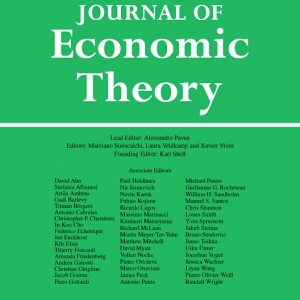
Denderski, P. and Stoltenberg, C. (2020). Risk sharing with private and public information Journal of Economic Theory, 186:.
-
Affiliated authorsPiotr Denderski, Christian Stoltenberg
-
Publication year2020
-
JournalJournal of Economic Theory
In this paper, we revisit the conventional view on efficient risk sharing that advance information on future shocks is detrimental to welfare. In our model, risk-averse agents receive private and public signals on future income realizations and engage in insurance contracts with limited enforceability. Consistent with the conventional view, better private and public signals are detrimental to welfare when only one type of signal is informative. Our main novel result applies when both signals are informative. In this case, we show that better public information can improve the allocation of risk when private signals are sufficiently precise. More precise public signals spread out the outside option values of high-income agents with high and low public signals and their willingness to transfer resources to low-income agents decreases. With informative private signals, however, more informative public signals increase outside option values of agents with a high signal by less than outside options of agents with a low signal decrease, facilitating more transfers. The latter effect dominates the former when private signals are sufficiently precise.